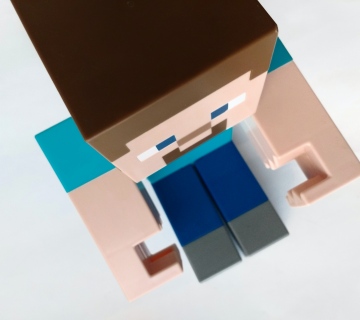Anatomy is one of the hardest classes that a nursing or any other medical field majors face. It is usually the first hard science class that the students enroll in. Unfortunately, it is also one of the harder of the science courses leading to a medical career. I have been teaching anatomy for the past five years and I have noted that students are rarely prepared for the class and that leads to many of my students being unsuccessful in the class. Consequently, one of the most asked questions by students are “How do I study for Anatomy?” There are many things that you the student can do in order to be successful in anatomy. The following list is my suggestions on things you can do in order to be successful in your anatomy class.

1. Allot Enough Time for the Course
Anatomy is mostly memorization. You learn where everything in the body is located and what it is named including all 206 bones in the body plus a couple hundred surface features on the bones (and that is only 1 exam!). This is not a class you can stack with another difficult and/or time consuming course (especially if you have a job or family which is the case for many of my community college students). Please resist the urge to take chemistry or physics the same semester as Anatomy. You will regret it. Anatomy is one of those courses that actually do require at least 3 times the amount of time you spend in class for studying.
2. Repetition is Key
You must study for this course every day. The more times you can go over the material the better. Again, this is a memorization course and the more times you can review the material, the more likely it is that it will stick. 30 minutes a night for a week is a better way to go than several hours the night before the exam. Flash cards can help.
You can purchase a set for between $20-$30 from Amazon.com or from your local book store. You can make your own with some 3 X 5 note cards. One way that flashcards are useful is that you can carry them around with you. You can then use them to study in those 10 minutes of time that we always find ourselves wasting in a day. You can review flash cards while waiting for your next class to start, while waiting for the bus, or riding the bus, or while waiting for someone to pick you up from somewhere. Believe me when I tell you those ten minutes add up. When I was a college student and worked a part time job I used to study in my ten minute breaks.
3. Use All Available Tools
There are many things you have access too or can get access to that will help you be successful in anatomy class. Your book is your first big tool. Use it, study from it. Don’t let it be a $200 doorstop. It should have helpful pictures and diagrams. Read the text. Sometimes an author will tell you where things are located that are not pointed out in the picture. Play to your strengths. If you learn more by reading then read the text a couple of times. If you are more of a visual learner then look at the pictures in your book and depend on the text less. If you are an auditory learner then ask your professor if you can record their lecture so you can listen to it again. Use the internet. Type in what you are learning about in Google. You will then be able to see more and different pictures of what you are learning. If a disc comes with your book then use it. It could have more pictures or self quizzes that could be valuable. There are iphone apps for Anatomy'”this can be as good as the flashcards. Get an atlas. It will again have more and different pictures of the items you are learning.
4. Use Class Time Wisely
Especially lab time. Many students will leave early from class if given study time during lab. That is not a good use of class time. For one, it is time you could be studying with the models, and/or diagrams that could be used on the exam. Secondly, if you study in your class lab time, you have the teacher at hand so you can ask questions. Thirdly, if many students leave early the professor may stop offering free study time. As for lecture time, use that time wisely as well. Ask questions if you have them, pay attention to the lecture (you may get a hint of what will be on the exam or some interesting anatomy research paper topics), and attend every class session. There is so much to cover in such a short time in Anatomy that if you miss a lecture you can miss a lot of material.
5. Tutoring Center
If your school or science department has a tutoring center then make use of it. Often, the tutors are past students who were successful in the class. Perhaps they can offer tips on what they did that allowed them to be successful in the class. Also, most science tutoring centers have models and slides (for the histology in anatomy) that you can review in preparation for the exam.
6. Get a study group together
Studying with your fellow students can help motivate you and help you be successful in the class. As any teacher can tell you, you never really know anything until you teach it. Plus you can trade study tips with each other and help keep each other motivated.
Hopefully these helpful hints and tips will help you be successful in your anatomy class or any other science class that you would like to take.





